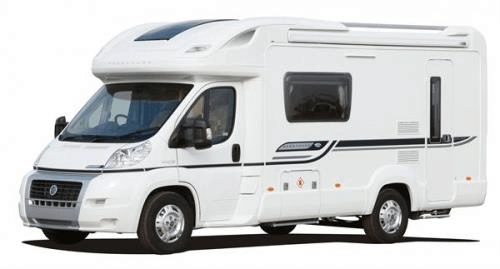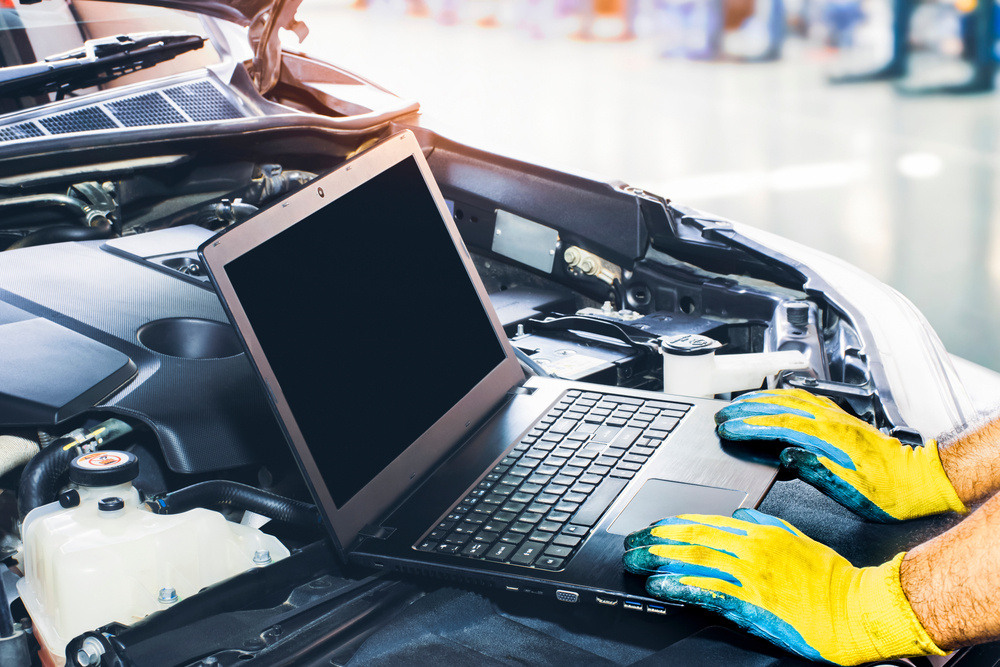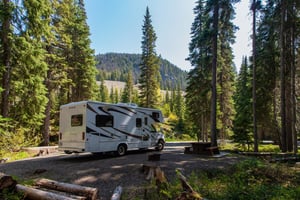Your motorhome is more than just a vehicle; it’s your ticket to adventure, a cosy home on wheels,...
Engine remapping has become an increasingly popular way for motorhome owners to enhance their vehicle’s performance without making any (or many) physical modifications. By tweaking the software that controls the engine, remapping can unlock extra power and often improve the motorhome’s fuel efficiency. However, while the benefits can be significant, there are also some potential downsides to consider.
In this article, we’ll explore both the advantages and disadvantages of remapping, helping you to decide whether it’s the right choice for your motorhome.
What is engine remapping?
Engine remapping is a cost-effective way to enhance your motorhome’s performance, increasing its power and torque whilst also hopefully improving its fuel efficiency - often by up to 15%.
The process involves modifying the motorhome’s onboard computer - known as the ECU (Engine Control Unit) - by updating its software. This is typically done by connecting a laptop to the vehicle’s system and rewriting the ECU’s programming. By optimising the engine’s settings, remapping unlocks extra performance without requiring any (or many) physical modifications to get the result that the owner wants.
Why do people do it?
Many motorhomes won’t have their engine set to be working at the maximum potential performance level, so in essence their performance is limited, in order to improve both reliability and help with emissions. Sometimes, motorhomes are limited in this way to help them perform adequately in adverse circumstances, such as really hot weather.
The remap, then, is often done with the hope of increasing the engine’s power by removing some of its imposed limitations.

So what are the main pros associated with engine remapping?
As with many upgrades, there are likely to be some significant benefits to remapping, which we discuss below…
You can improve your motorhome’s performance
By optimising the ECU settings, your motorhome can deliver more power and torque, making acceleration quicker and the overall driving more responsive. It might help with tricky hills, too!
It’s a software change, not a physical one
Unlike mechanical modifications, remapping only involves updating the ECU software, meaning there are no new parts to install. This makes the process quicker, usually taking less than an hour, and leaves the vehicle looking essentially the same while improving its performance.
It can usually be reversed
If you don’t like it or need to restore the motorhome to its original settings - perhaps for resale or warranty reasons - the remap can usually be reversed. Many tuners offer a backup of the original software, allowing you to revert to factory settings if needed.
It’s not usually that expensive
Prices do vary, but compared to some mechanical modifications, remapping is relatively affordable. Depending on the motorhome and tuning company, costs typically range from a few hundred to a thousand pounds, making it a cost-effective way to boost performance.

What are the main cons likely to be?
And on the reverse, there are sometimes some downsides to remapping, which are discussed here…
You might find your insurance goes up
Since remapping increases power and performance, many insurers classify it as a modification, which can lead to higher premiums. Some providers might even refuse to cover the motorhome, so it’s important to check with your insurer before going ahead with a remap.
The motorhome might be less reliable
While a professionally-done remap shouldn’t cause problems, pushing an engine beyond its factory settings can increase wear and tear. Some components like the clutch and the gearbox may wear out faster, especially if the motorhome is driven aggressively.
It adds more stress to your engine
Higher power outputs mean the engine needs to work harder, which can lead to increased strain on many of the engine’s critical components. This makes regular servicing even more important, as neglecting the necessary maintenance requirements can result in certain issues, such as overheating or excessive fuel consumption.
Not every motorhome can be remapped
Some older models will have outdated software that can’t be modified, meaning remapping isn’t an option. Additionally, certain engines might see minimal gains from remapping, making it less worthwhile in those cases.
Finally - if you have a newer motorhome that’s still under warranty you might find the warranty is invalidated by having the engine remapped.
How much does engine remapping cost?
The cost of engine remapping varies depending on the level of tuning you choose. Generally, remapping is categorised into three stages, with each offering more performance but also requiring additional modifications. Often, owners tend to opt for a Stage 1 remap, especially to start with. Here’s a breakdown of what you might expect to pay for each stage…
Stage 1 remap
Likely costing a couple of hundred pounds, this includes a simple ECU software tweak, usually increasing power and torque without adding any hardware changes. Typically, you could expect to see 10-30% more power, depending on the engine type.
Stage 2 remap
Often costing £500 to around £1,200, this includes a more aggressive ECU tune, often requiring supporting modifications like a change to the exhaust.
Stage 3 remap
Potentially costing from £1,000 to £3,000 or more, this includes a full performance upgrade, requiring major hardware changes such as an upgraded cooling system. This gives a significant increase in horsepower, often 50% or more, but with higher stress on the engine.

Is it worth the cost?
For most owners, a Stage 1 remap provides the best balance of affordability, performance and also reliability. However, if you’re after more power and don’t mind investing in supporting modifications, going for Stage 2 or 3 can take your motorhome to the next level. Just remember that the higher stages may lead to increased wear and also additional maintenance costs in the long run. Whatever you decide, just make sure to take your motorhome to an expert to do the work…
So - there’s some food for thought here. Engine remapping offers a tempting way to boost your motorhome’s performance. However, it’s not without its risks. If you’re thinking about a remap, it’s essential to do your research, choose a reputable tuner, and ensure your motorhome is well-maintained in the longer term.
For many owners, the benefits outweigh the negatives, but whether it’s the right choice for you will depend on your driving habits, budget, and long-term plans for your motorhome.







